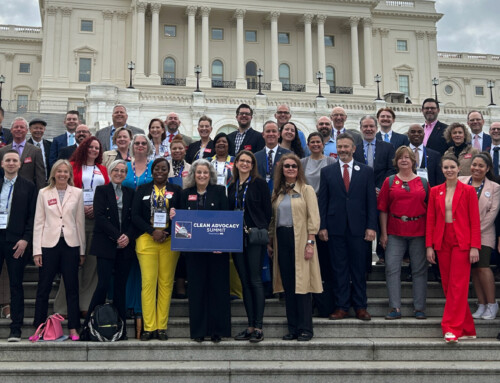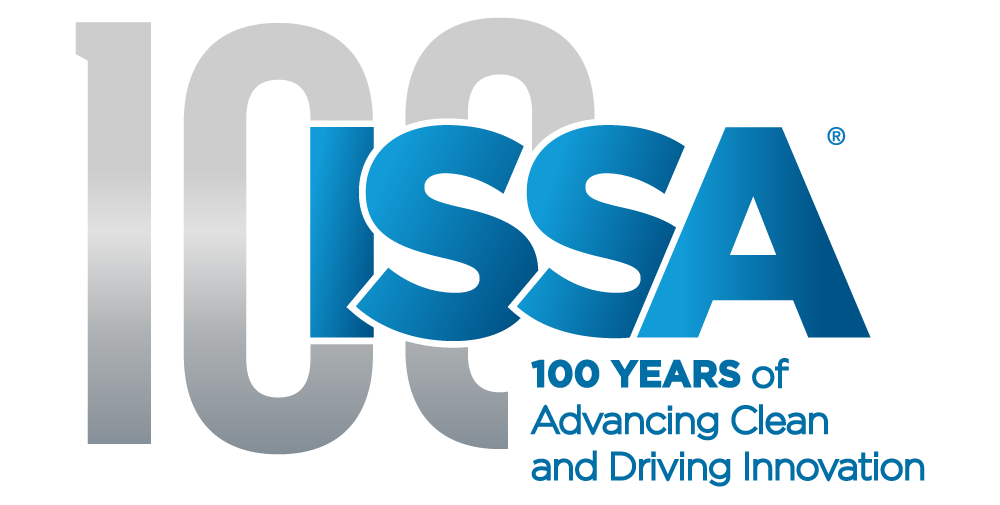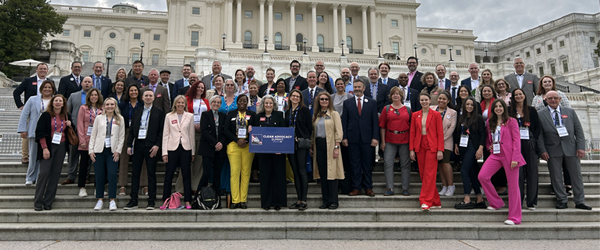The New York HERO Act and the Cleaning Industry: A Legislative Summary
On April 20, 2021, the New York legislature passed the New York Health and Essential Rights Act (“HERO Act,” S. 1034B). New York Governor Andrew Cuomo signed the legislation into law on May 5, 2021. The HERO Act will take effect 30 days after the Governor’s signature. The following is a summary of this new state law, which has implications for New York employers and employees, as well as for the cleaning industry.
New Workplace Standards
The HERO Act requires the New York Department of Labor (NYDOL), in consultation with the New York Department of Health, to create industry-specific model airborne infectious disease exposure prevention standards, including procedures and methods for:
- Regular cleaning and disinfecting
- Employee health screenings
- Face coverings
- Required personal protective equipment (PPE)
- Hand hygiene
- Social distancing
- Compliance with mandatory or precautionary orders of isolation or quarantine
- Compliance with applicable engineering controls (e.g., proper air flow)
- Designation of one or more supervisory employees to enforce compliance
- Verbal review of health and safety standards.
Employers are required to implement a health and safety plan either by adopting the NYDOL model standard relevant to their industry or by establishing an alternative plan that meets or exceeds the NYDOL standards. Upon reopening and upon hiring, employers are required to post the adopted plan in the workplace and distribute copies of the plan to all employees in English and in the language identified by each employee as their primary language. (If the employee identifies a primary language for which a model document is not available, employers comply by providing that employee with an English-language plan.) Employers with employee handbooks also are required to include the plan in their handbooks.
Employers who fail to adopt a plan will be subject to a penalty of at least US$50 per day until a plan is implemented. Employers who fail to comply with an adopted plan could be subject to fines ranging from $1,000 to $10,000.
Employees Can Sue for Non-Compliance
According to JD Supra, the HERO Act creates a “private right of action for employees to bring claims for injunctive relief against their employers for failing to comply with applicable workplace health and safety standards.” Courts may award up to $20,000 in damages and attorneys’ fees to a prevailing plaintiff under the act, unless the employer proves a “good-faith basis to believe that the established health and safety measures followed the applicable airborne infectious disease standard.”
Anti-Retaliation Provisions
The HERO Act prohibits an employer from discriminating, threatening, retaliating against, or taking adverse action against any employee for:
- Exercising their rights under the HERO Act or under a workplace health and safety plan;
- Reporting violations of the HERO Act or an applicable workplace health and safety plan;
- Reporting a workplace health and safety concern or seeking assistance or intervention with respect to airborne infectious disease exposure concerns; or
- Refusing to work where such employee reasonably believes, in good faith, that such work exposes them, other employees, or the public, to an unreasonable risk of exposure to an airborne infectious disease due to working conditions that are inconsistent with the law or workplace health and safety plan.
Joint Labor-Management Workplace Safety Committee
The HERO Act requires employers with at least 10 employees to permit employees to establish and administer a “joint labor-management workplace safety committee.” Committees must be composed of employee and employer designees, provided that at least two-thirds of all committee members are non-supervisory employees. The act’s Joint Labor-Management Workplace Safety Committee provision takes effect 180 days after the act is signed into law.
The committee has the authority to:
- Raise health and safety concerns, to which the employer must respond
- Review any employer policy required by the HERO Act or the New York Workers’ Compensation Law and provide feedback
- Review any workplace policy promulgated in response to any health or safety law
- Participate in any site visit by a government entity responsible for enforcing health and safety standards
- Review any employer health and safety report
- Regularly schedule a meeting during work hours at least once per quarter.
Committee members must be permitted to attend training associated with their role without loss of pay. Retaliation against committee members is prohibited and punishable by a civil fine of up to $10,000. Committee members who believe that they have suffered retaliation also may assert claims in court and may recover liquidated damages and attorneys’ fees.
Employer Action Items
NYDOL has 30 days from the time Governor Cuomo signed the HERO Act to create new workplace health and safety standards. According to JD Supra, employers should begin by reviewing any existing COVID-19 prevention plans that they have in place and be prepared to make any changes in accordance with NYDOL standards as soon as they are adopted. Employers must, however, continue to comply with existing state and local reopening guidelines, as well as applicable U.S. Occupational Safety and Health Administration (OSHA) requirements. Employers also should arrange to implement, post, and distribute adopted workplace health and safety plans and provide managers with both compliance and anti-retaliation training.
Finally, employers with at least 10 employees should prepare to implement a joint labor-management workplace safety committee that will receive information concerning workplace health and safety. Employers are advised to consult with counsel experienced in traditional labor law regarding National Labor Relations Act restrictions on the functions of an advisory committee that includes employee designees.
ISSA is closely monitoring the development of new workplace health and safety standards in New York, as well as the imminent release of similar standards by the federal OSHA. We will keep our members apprised as these standards evolve. To learn more about COVID-19-specific emergency workplace standards, visit ISSA’s website. For general questions regarding the HERO Act, please contact ISSA Government Affairs Coordinator Stacy Seiden. ISSA encourages employers to consult legal counsel with any specific questions they may have regarding the act.

















